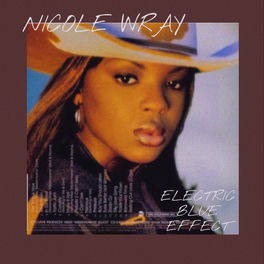


Wah, echo and a few other effects define Auerbach's semi-ghostly guitar sound here, but it's also the first time his voice appears on the album. The photos hint that RZA may have played bass on the album as well, and there's a strong line in place here to suggest that. NOE has a style and voice that are reminiscent of Jay-Z (apparently to his detriment in the past), with an ease and confidence that avoids aggression like ODB's and lets the song maintain its own relaxed pacing.Ī semi-traditional hip-hop rhythm from Patrick opens "Dollaz & Sense", with RZA showing his appreciation for the beat and moves to get his voice in place accompanying before the song opens up. The Keys have a little bit more dominance and control on the track, perhaps because they have a bass and a piano accompanying them, and Patrick is filling more of the rhythm out on his kit than on the previous tracks. NOE's first appearance on the album is on "Hard Times", which uses the vocals of Nicole Wray as a sort of sample (though they are apparently live recordings), repeating the title of the song. A bassline (uncredited, but based on the photos, most likely the work of Mos Def himself) is the essence of the beat, but Auerbach fills the space between Mos Def's words with the fuzzy bends and wails he is known for, relenting only to give Mos Def the space to sing out variations on the words "total control" in a knowingly off-key and random sort of way. Patrick pounds the song into place though, using a floor tom fill to ground the beat. Somewhat out of character from the rest of the emcees in place, Mos Def appears next on "On the Vista", rapping about freeing consciousness, abandoning materialism-taking control. Auerbach comes into the goreground for the outro, playing further with the still echoing lead he drops throughout the song. ODB and Ludacris both talk about women whose sexual appetites are utterly irresistible to them, and their voices take up all the space Carney leaves, multiplying the speed of the rhythm significantly. He's paired with Ludacris, the two of them opening the song with the vocal hook, which is backed by Auerbach's plaintive, distant guitar line, and Carney's economical drum beat, that gives the song a lot of space but doesn't sacrifice power. What is more unusual is for an explicit rock band to be specifically acting as the beat for a set of rappers.įeaturing pre-recored vocals as Ol' Dirty Bastard had already passed on, "Coochie" opens the CD and vinyl versions of the album (unlike the digital versions at iTunes and Amazon, which lack the track). They don't use any sampling, which isn't unheard of in rap (as I noted earlier, the two are mixed heavily in Atmosphere's The Family Sign, for instance) but still remains unusual. In any case, they are composed (as it were) of the Black Keys (Dan Auerbach and Patrick Carney), Ol' Dirty Bastard, RZA (it's pronounced rizzuh, basically), and Raekwon from the Wu Tang Clan, Jim Jones (the rapper, not the cult leader) and NOE from Jim Jones' label ByrdGang, Q-Tip from a Tribe Called Quest, Pharoahe Monch, Ludacris, Billy Danze, Mos Def, and Nicole Wray. It means that albums like these make me kind of wary, even as the idea of them attracts me.īlakroc is not, and was not, a "group", so to speak, and is often referred to as a "rock/hip-hop collective", a bit of a silly term for a group of musicians who collaborated once, briefly, and that's essentially all. In any case, I often swing either way when it comes to voices, sometimes nearly ignoring them, but often clinging to them as much as anyone. I don't know that anyone has actually studied this, but I'm inclined to think it relates to the fact that we all are capable of making noise with throat and mouth, so there's a base to start the understanding from. There's a seeming human tendency to identify most with the voice in any given musical act, one that means that the vocalist is seen as the star by the majority, regardless of their actual role in creating the music.

Largely, though, I've left the album alone for reasons similar to the reasons I left Rádio do Canibal alone-it felt like it would end up a mishmash of disjointed sounds due to the "varied guests per track" approach. It would be clever if it were planned in some way. That Blakroc's lone album happens to follow Rádio do Canibal in my collection, alphabetically, is pure coincidence, but it's kind of an amusing one. All kinds of connections just have their sort of appeal to me-it's that love of crossover, patterns, references, and in-jokes that I can't resist, if achieved via skill or pure coincidence. I'm always inwardly leaping for joy at moments of silly synchronicity.


 0 kommentar(er)
0 kommentar(er)
